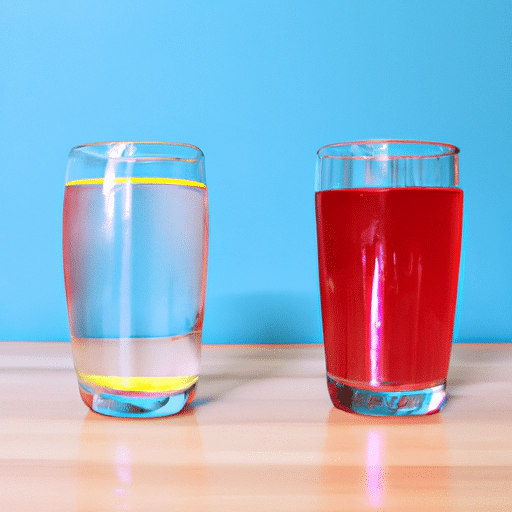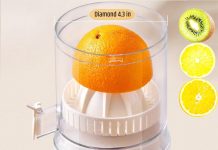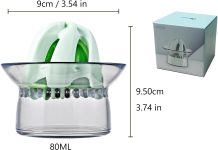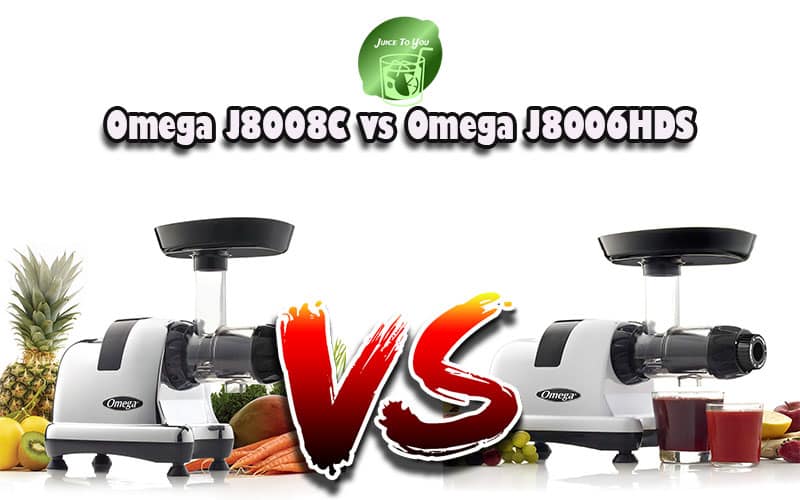Fruit juice has long been lauded as a healthy option to quench our thirst and give us a boost of vitamins. But how similar is it to the trusted classic: water? In this article, we explore the differences between drinking fruit juice and drinking water, uncovering some surprising facts along the way. So, if you’re curious about the impact of your beverage choices on your overall health, keep reading to discover whether fruit juice truly holds the same benefits as our beloved H2O.
Review contents
Benefits of Drinking Water
Helps with hydration
Drinking water is essential for maintaining proper hydration. Water helps to replenish the fluids lost through sweating, urine, and other bodily functions. Staying hydrated is crucial for our bodies to function properly. It aids in digestion, circulation, nutrient absorption, and the maintenance of body temperature.
Aids in digestion
Water plays a vital role in the digestion process. It helps to break down food and facilitates the absorption of nutrients in the digestive system. Drinking an adequate amount of water can prevent constipation and promote regular bowel movements. It also helps to soften stools, making them easier to pass.
Promotes healthy skin
One of the most noticeable benefits of drinking water is its impact on our skin. By staying hydrated, we can maintain the moisture and elasticity of our skin, reducing the appearance of wrinkles and promoting a healthy complexion. Water also helps to flush out toxins from the body, which can contribute to clearer and more radiant skin.
Regulates body temperature
Water is essential for maintaining a normal body temperature. It helps to regulate body heat through processes such as sweating and evaporation. When we become dehydrated, our body’s ability to cool itself down is compromised, leading to heat exhaustion or even heatstroke. By drinking enough water, we can ensure that our body stays within a safe temperature range.
Different Types of Fruit Juice
Natural fruit juice
Natural fruit juice is made by extracting the liquid from fresh fruits. It contains the natural sugars, vitamins, and minerals present in the fruit. Natural fruit juice can be a refreshing and delicious way to consume fruits, providing a concentrated source of nutrients.
Concentrated fruit juice
Concentrated fruit juice is made by removing the water content from natural fruit juice, resulting in a thicker and more condensed form. This process allows for easier storage and transportation. To consume concentrated fruit juice, it needs to be diluted with water according to the instructions on the packaging.
Added sugar in fruit juice
Some fruit juices, especially those sold in supermarkets, may contain added sugars for taste enhancement. These added sugars can contribute to an increased calorie intake and may have negative health effects if consumed excessively. It is important to check the ingredient list and nutritional information to make informed choices about the fruit juice we consume.
Nutritional Content of Fruit Juice
Vitamins and minerals
Fruit juice can be a good source of vitamins and minerals, depending on the type of fruit used. Different fruits offer a variety of nutrient profiles. For example, orange juice is rich in vitamin C, while pomegranate juice provides antioxidants. When choosing fruit juice, it is beneficial to consider the specific nutrients we want to incorporate into our diet.
Sugar content
The sugar content in fruit juice can vary depending on the fruit and whether any additional sugars have been added. While naturally occurring sugars in fruit are generally considered healthier than added sugars, excessive consumption of fruit juice with high sugar content can still contribute to an increased calorie intake and potential health risks. Moderation is key when it comes to consuming fruit juice.
Calorie content
Fruit juice can be a significant source of calories, especially if consumed in large quantities. The exact calorie content varies depending on the type and amount of fruit used, as well as any additional sugars. It is essential to be mindful of our overall calorie intake and consider the nutritional value of the fruit juice in relation to the other foods we consume.
Hydration Value of Fruit Juice
Water content in fruit juice
Fruit juice generally contains a significant amount of water since it is extracted from juicy fruits. However, the water content can vary depending on factors such as the type of fruit, the juicing process, and whether any water has been added during production. While fruit juice can contribute to our overall hydration, it is important to remember that water remains the most effective and natural way to hydrate our bodies.
Effectiveness for rehydration
While fruit juice can provide some hydration, particularly when consumed after physical activity or during hot weather, it is not as effective for rehydration as plain water. The presence of natural sugars and other compounds in fruit juice can slow down the absorption of water and electrolytes, making it less efficient for restoring fluid balance in the body. Therefore, when it comes to rehydration, water should be the primary choice.
Benefits of Drinking Fruit Juice
Source of vitamins and antioxidants
Fruit juice can be a convenient source of essential vitamins and antioxidants. These nutrients play crucial roles in supporting various bodily functions, such as immune function, maintaining healthy skin, and reducing the risk of chronic diseases. However, it is important to remember that consuming whole fruits is generally a healthier option since they provide additional dietary fiber.
Provides a burst of energy
The natural sugars in fruit juice can provide a quick source of energy. This can be particularly beneficial during physical activity or when we need a quick pick-me-up. However, it is essential to consume fruit juice in moderation, as excessive intake of sugar can lead to energy crashes and other health issues.
Can help meet daily fruit requirements
Fruit juice can be a convenient way to incorporate fruits into our diet, especially for individuals who find it challenging to consume whole fruits. However, it is important to note that whole fruits are generally more beneficial due to their higher fiber content, which aids in digestion and promotes a longer-lasting feeling of fullness. Therefore, while fruit juice can help meet some of our daily fruit requirements, it should not replace the consumption of whole fruits.
Comparison of Water and Fruit Juice
Hydration effectiveness
When comparing water and fruit juice, water is the superior choice for hydration. Plain water is naturally free of sugars, additives, and calories, making it the most effective way to replenish the body’s fluids. Fruit juice, while containing some water, also contains natural sugars and other compounds that can slow down the absorption of water, limiting its effectiveness for hydration.
Nutritional content
Water is essential for our bodies but does not provide significant amounts of vitamins, minerals, or other nutrients. On the other hand, fruit juice can be a source of various nutrients, depending on the type of fruit used. While it can contribute to our overall nutrient intake, it is important to consider the sugar and calorie content when choosing fruit juice.
Impact on blood sugar levels
Water has no impact on blood sugar levels since it does not contain any sugars. In contrast, fruit juice contains natural sugars, which can cause a spike in blood sugar levels, particularly if consumed in large quantities. Individuals with certain medical conditions, such as diabetes, should be cautious when consuming fruit juice and consider its impact on blood sugar control.
Recommended Daily Intake
Water intake recommendations
The recommended daily water intake varies depending on factors such as age, sex, activity level, and climate. However, a general guideline is to drink at least eight glasses (64 ounces) of water per day. Additionally, individuals should increase their water intake during physical activity, hot weather, or when experiencing illness or certain medical conditions such as kidney stones.
Fruit juice intake recommendations
When it comes to fruit juice, moderation is key. The American Academy of Pediatrics recommends limiting the consumption of fruit juice to 4 to 6 ounces per day for children aged 1 to 6 years old. For older children, teenagers, and adults, the intake should be further limited to 8 to 12 ounces per day. It is important to remember that whole fruits are generally a healthier option due to their higher fiber content.
Potential Risks of Excessive Fruit Juice Consumption
Increased sugar intake
Fruit juice can be a significant source of added sugars, depending on the type and quantity consumed. Excessive intake of added sugars can contribute to weight gain, obesity, and an increased risk of chronic conditions such as type 2 diabetes and heart disease. It is important to be mindful of our overall sugar intake and choose fruit juice with no added sugars or consume whole fruits instead.
Weight gain and obesity
Due to their calorie content, consuming large quantities of fruit juice can contribute to weight gain and obesity, especially when combined with a sedentary lifestyle and an overall unhealthy diet. Liquid calories are generally less satisfying than solid food, which can lead to overconsumption. It is important to consider the calorie content of fruit juice and balance it with other foods and physical activity.
Dental health issues
Fruit juice, especially those with added sugars, can contribute to dental health issues such as tooth decay and cavities. The natural sugars in fruit juice can feed bacteria in the mouth, leading to the production of acids that erode tooth enamel. It is recommended to consume fruit juice in moderation, use a straw to minimize contact with teeth, and practice good oral hygiene.
Conclusion
In conclusion, both drinking water and consuming fruit juice have their benefits and considerations. Water remains the best choice for hydration and should be the primary source of fluid intake. It helps with digestion, promotes healthy skin, and regulates body temperature. Fruit juice can be a source of vitamins and antioxidants, provide a burst of energy, and help meet daily fruit requirements. However, moderation is crucial due to the sugar and calorie content in fruit juice. Whole fruits should be prioritized for their higher fiber content. It is important to consider the nutritional content, impact on blood sugar levels, and potential risks of excessive fruit juice consumption. By making informed choices and balancing our fluid intake, we can maintain a healthy and hydrated lifestyle.

































